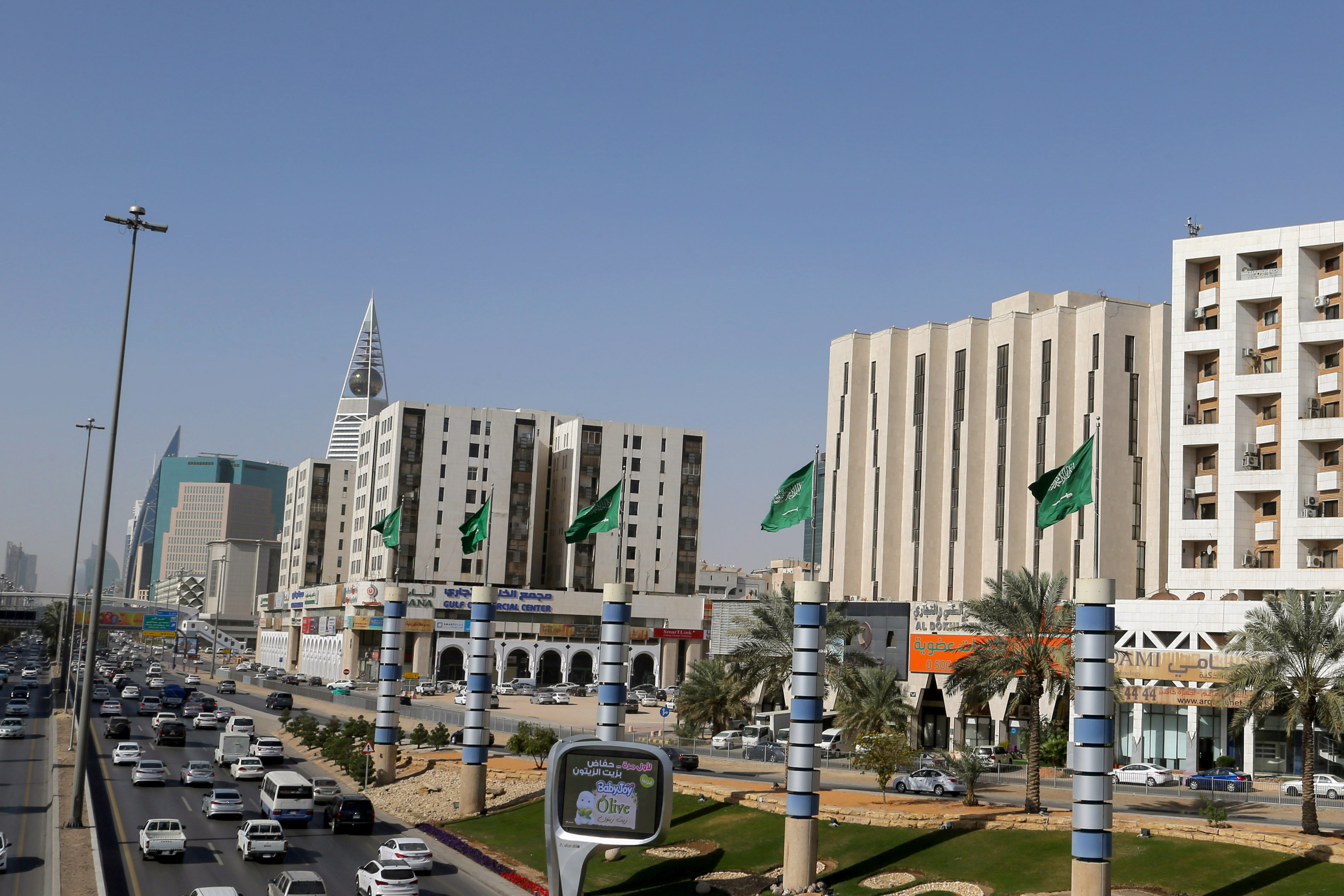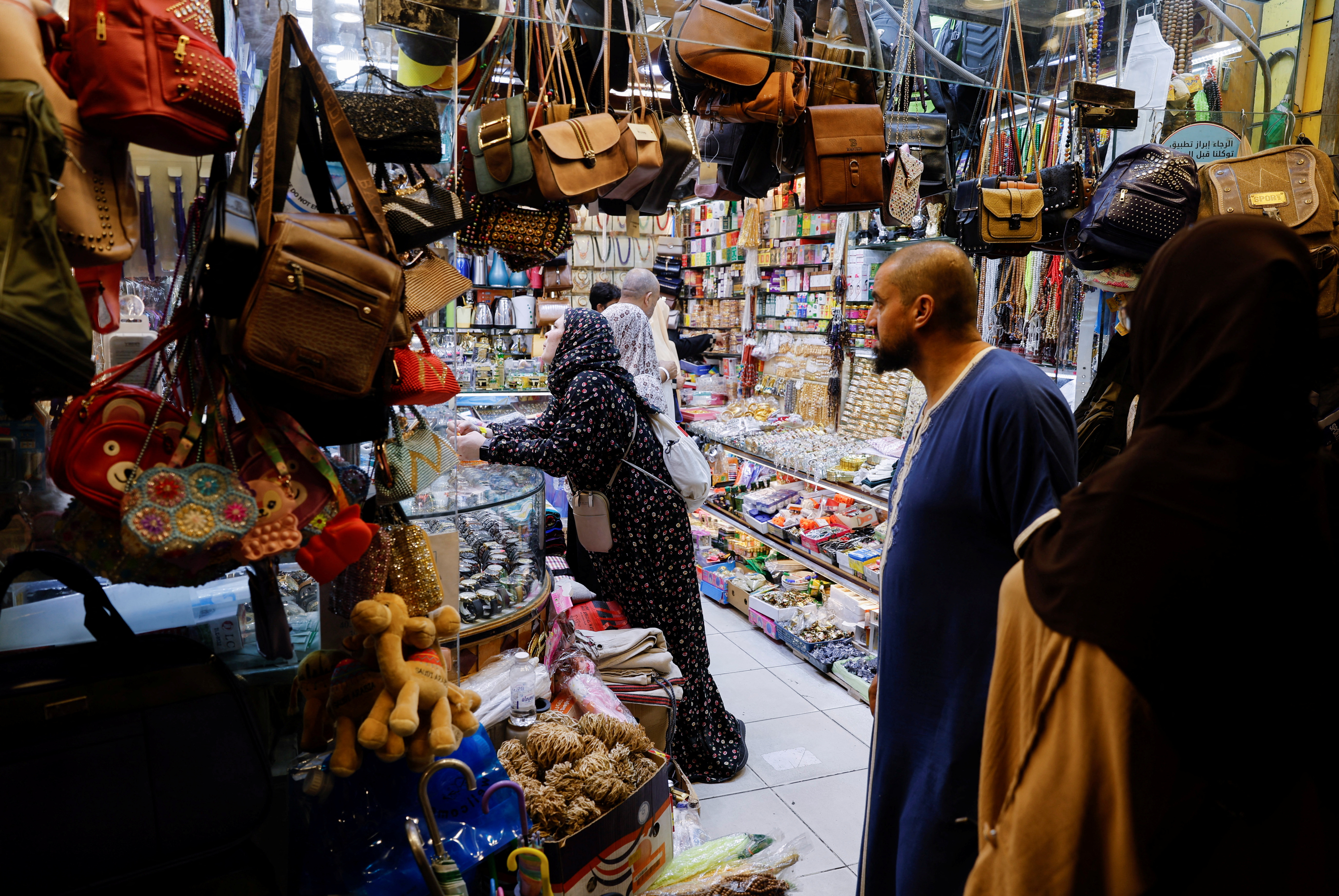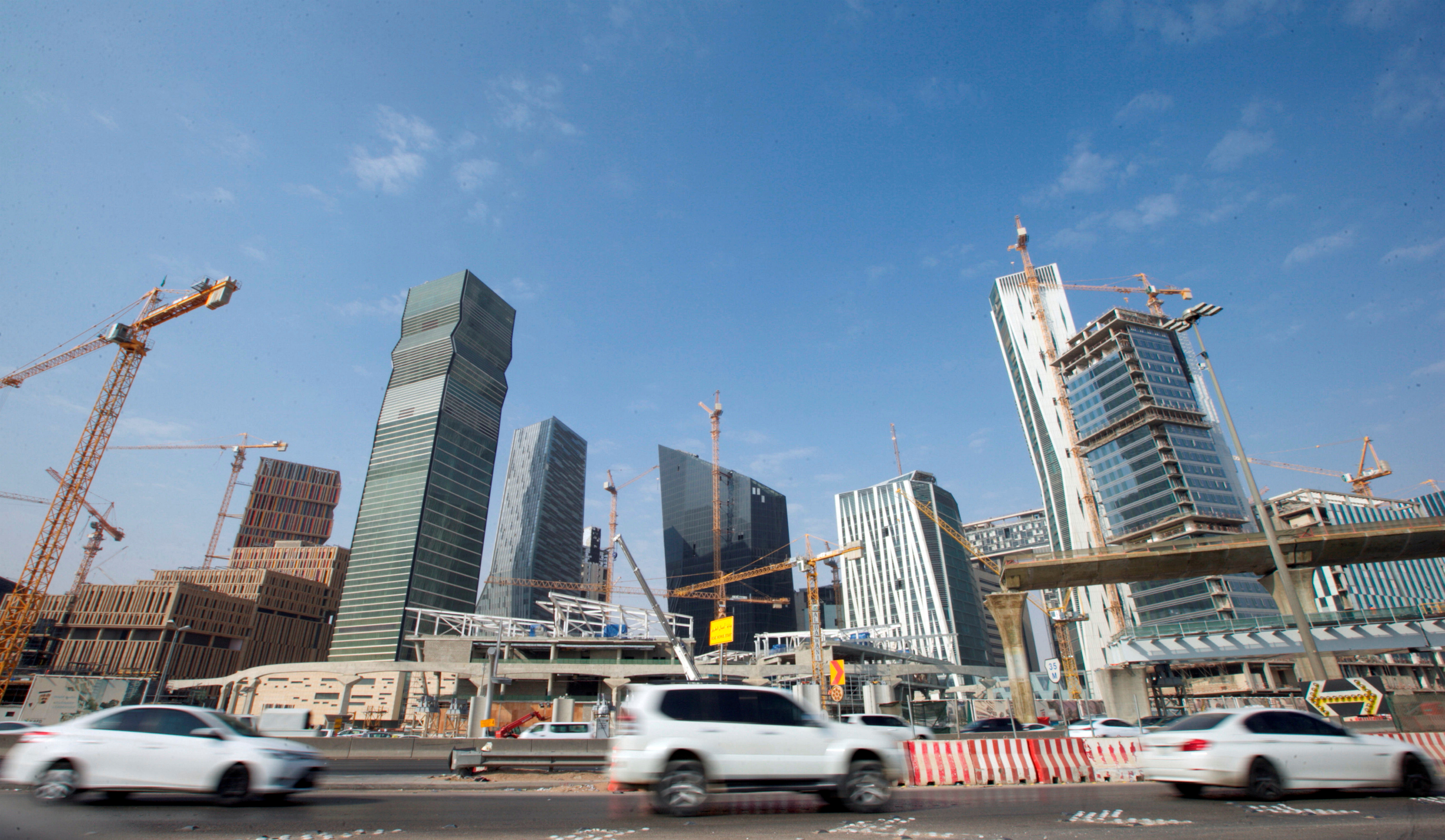DUBAI, Oct 31 (Reuters) - Saudi Arabia's gross domestic product expanded by 8.6% in the third quarter compared with the same period in 2021, according to initial government estimates on Monday, as the world's top oil exporter benefits from higher energy prices.
Growth was largely driven by a 14.5% increase in oil activities, the General Authority for Statistics said, while non-oil activities expanded 5.6%.
Second quarter real gross domestic product was up 12.2%, the kingdom reported in September, exceeding a flash estimate at the end of July of 11.8% growth on the back of higher oil prices.
The finance ministry separately reported on Monday Saudi Arabia's fiscal figures for the third quarter.
It recorded revenues of 301.87 billion riyals ($80.14 billion), a rise of 24% from the same period a year earlier.
Expenses rose 22% to 287.73 billion riyals in the third quarter, compared with the year earlier period.
It reported a budget surplus of 14.14 billion riyals for the third quarter, and oil revenues of 229.02 billion riyals.
Although revenues and expenses were higher year-on-year, there was a slight pullback compared with the second quarter, with revenues of 370.36 billion and expenses of 292.46 billion.
"The fiscal surplus narrowed in 3Q in quarterly terms on the back of lower revenue, both oil and non-oil, and despite a modest pullback in government spending from the 2Q level," said Monica Malik, chief economist at Abu Dhabi Commercial Bank.
"Nevertheless, Saudi is in position to realise a healthy fiscal surplus in 2022 with a strong yearly increase in oil revenue," Malik said.






 https://www.reuters.com/resizer/ikkXtNZDKJtXpABbhNHF6C1he2I=/960x0/filters:quality(80)/cloudfront-us-east-2.images.arcpublishing.com/reuters/CAIPH2E4SJJIZJURYOFEEVU76Q.jpg 960w,
https://www.reuters.com/resizer/ikkXtNZDKJtXpABbhNHF6C1he2I=/960x0/filters:quality(80)/cloudfront-us-east-2.images.arcpublishing.com/reuters/CAIPH2E4SJJIZJURYOFEEVU76Q.jpg 960w, https://www.reuters.com/resizer/q2BRk8AokeQ178-rAormcP6-SFI=/960x0/filters:quality(80)/cloudfront-us-east-2.images.arcpublishing.com/reuters/QUDWUBFVOJMFZBHOAR3MGD4E7A.jpg 960w,
https://www.reuters.com/resizer/q2BRk8AokeQ178-rAormcP6-SFI=/960x0/filters:quality(80)/cloudfront-us-east-2.images.arcpublishing.com/reuters/QUDWUBFVOJMFZBHOAR3MGD4E7A.jpg 960w, https://www.reuters.com/resizer/nUI4vr8LPk0xJ7ZD_xooFGtEVBk=/960x0/filters:quality(80)/cloudfront-us-east-2.images.arcpublishing.com/reuters/SC3L5IQJS5ILRJ7BUCZLBU3FSY.jpg 960w,
https://www.reuters.com/resizer/nUI4vr8LPk0xJ7ZD_xooFGtEVBk=/960x0/filters:quality(80)/cloudfront-us-east-2.images.arcpublishing.com/reuters/SC3L5IQJS5ILRJ7BUCZLBU3FSY.jpg 960w,